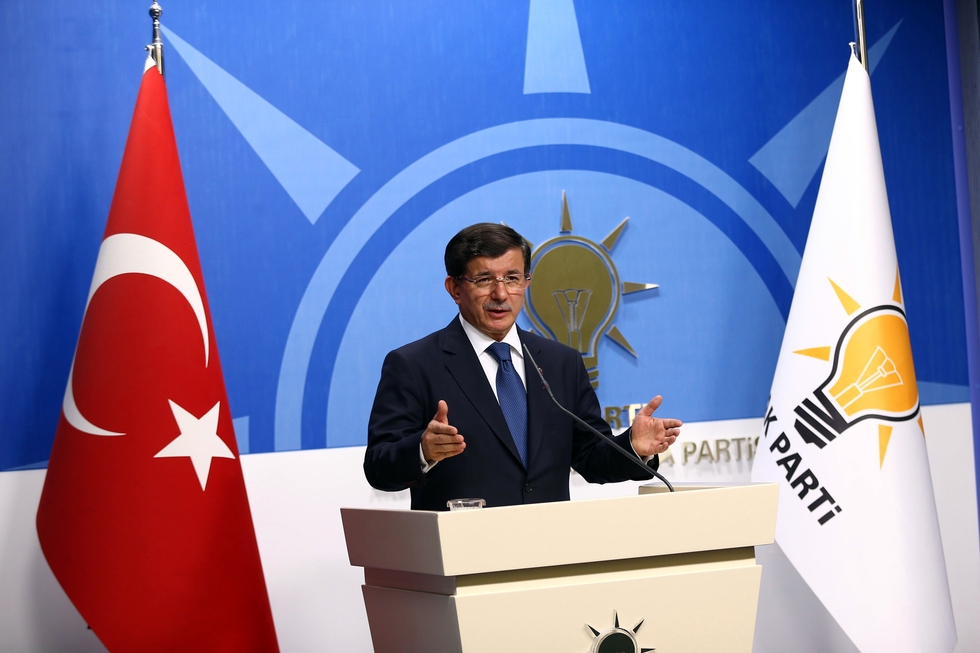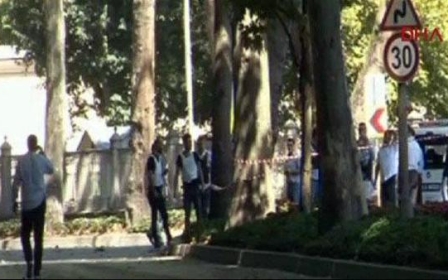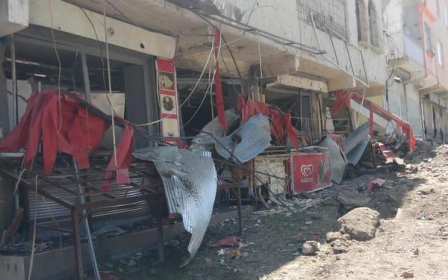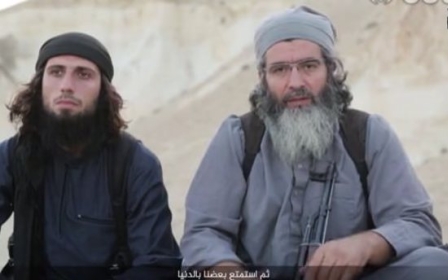Turkey’s deepening disarray

Turkey’s political scene is sinking into ever deeper disarray. In Ankara, attempts to form a coalition government after the 7 June elections have finally broken down. This weekend President Recep Tayyip Erdogan gains the right to dissolve parliament and call early elections. It will be a desperate no-holds barred struggle between the parties.
Worse still, the situation in eastern Turkey looks steadily more alarming and its impact on Turkey’s national politics is growing. Exactly a month ago now, the Turkish government, supported by the US, ended the two year old peace process after the killing of two policemen and launched Operation Martyr Yalcin, massive air strikes against PKK encampments in northern Iraq and eastern Turkey. Since then, it claims, 490 PKK militants have been killed as well as 43 soldiers and police.
If the intention was to subdue the PKK and restore law and order in eastern Turkey, so far the operation has failed. Not only is the death toll of police and soldiers climbing inexorably with an average of three deaths most days, the PKK has now taken a radical step which throws the entire future of Turkish-Kurdish relations into question.
Last weekend, in at least eleven towns in southeastern Anatolia, sections of the local population – some PKK members and sympathetic local officials belonging to the KCK (Group of Communities in Kurdistan, a PKK civilian offshoot) – declared complete autonomy from Ankara’s rule.
In Varto, a remote mountain town in Mush province, supporters of autonomy held the town for more than 12 hours. Government control was restored after the enforcement of 20 hour curfew with the use of helicopters. There was also a spate of “autonomy declarations” in at least eleven other communities including Van, Sırnak, Hakkari, Varto, Bulanık, Sur, Silvan, Silopi, Cizre, Nusaybin and Yuksekova. Four mayors, including the co-mayor of the region’s capital Diyarbakir, have so far been arrested for alleged involvement in the autonomy declarations.
Why has this happened? Outside the more radical extreme south eastern areas of the Tigris valley (where many of the autonomy declarations have been made), many, perhaps most, Kurds do not call for outright independence. War conditions, however, have handed a strong military opportunity to PKK hardliners who do want to break away from Turkey and enabled them to outflank Kurdish moderates politically.
Militarily they have been able to rain down a stream of violent attacks on police stations and key security points, aimed at systematically degrading Turkey’s security structure in the south east. In some towns the population is digging trenches in what looks like preparations for an insurrection.
Though very brutal, the attacks on police and soldiers are not simply random local violence. They clear the way for more radical separatist political initiatives of which the weekend’s declarations of autonomy may be the first. This poses an almost hopeless dilemma for the authorities. If, as in the past, they crack down hard, hostility in Kurdish-populated areas - and violence - will grow. But with elections looming and tough promises already made to finish off the PKK, a soft line is unthinkable.
Some Kurdish officials said they had declared autonomy to oppose the AKP because political options had been closed to them.
Events since the elections have demonstrated fairly clearly to the country as a whole that the AKP is not prepared to share power, still less to hand it over to another party. The coalition negotiations did not start for more than a month. They then took an entire month, and were pronounced a failure by the AKP Prime Minister, Ahmet Davutoglu, just before the expiry of the time limit.
Normally the second largest party would then be given a try. President Erdogan, however, indicates that he may not allow the CHP, (Republican People’s Party) a chance to try and form a government, even though it would certainly at least get the votes of the pro-Kurdish HDP (People’s Democratic Party).
The HDP itself has been blasted by AKP leaders as tantamount to terroristic and accused of supporting bombings, even though it has made continual appeals to the PKK to stop the violence. Judicial moves to prosecute the HDP leaders on terrorism charges have been started. Harshest of all, Nihat Zeybekci, minister of the economy, even suggested that the war with the PKK was a “war with kafirs” (infidels).
It is not hard to see why radicals among the Kurds currently feel they have little to gain from conventional national politics. If left unresolved, their discontent could spiral into a full-blown independence movement.
Turkey does only not have to worry about the deadlock in Ankara politics and a war against the PKK. Alongside all Turkey’s other problems, the confrontation with the Islamic State group (IS) is growing largely unnoticed even though the last IS bombing at Suruc, in eastern Turkey, a month ago killed 34 people – far more than any PKK attack to date.
IS this week renewed threats against Turkey. Polls suggest that, even though 90 percent of Turks fear IS, the movement may have as many as two million IS supporters.
As yet, however, it seems to be a relatively low political priority and only a couple of Turkish jet attacks seem to have been launched from the Incirlik base so far.
Will elections help make all these problems more tractable? It seems doubtful. Though the AKP and the president now look set on holding snap elections, the majority of polls say the AKP’s share will either stay about the same or drop a percent or two. There is no sign yet that the HDP is likely to decline.
Ozer Sencer of Metropoll, a leading Turkish pollster whose predictions proved sound at the last elections, says the HDP might even get 17 or 18 percent and thus become Turkey’s third party. He warns that thanks to an influx of discontented AKP Kurdish voters, the post-election HDP will have probably be less conciliatory.
Such considerations do not seem to worry the decision-takers in Ankara. The AKP strategy seems to be to press on, denouncing its rivals and refusing all compromises without regard to the middle and long term consequences, as the war in eastern Anatolia already tragically shows.
- David Barchard has worked in Turkey as a journalist, consultant, and university teacher. He writes regularly on Turkish society, politics, and history, and is currently finishing a book on the Ottoman Empire in the 19th century.
The views expressed in this article belong to the author and do not necessarily reflect the editorial policy of Middle East Eye.
Photo: Prime Minister and leader of the Justice and Development Party (AKP) Ahmet Davutoglu gestures during a press conference at the party headquarters in Ankara on 17 August (AFP)
New MEE newsletter: Jerusalem Dispatch
Sign up to get the latest insights and analysis on Israel-Palestine, alongside Turkey Unpacked and other MEE newsletters
Middle East Eye delivers independent and unrivalled coverage and analysis of the Middle East, North Africa and beyond. To learn more about republishing this content and the associated fees, please fill out this form. More about MEE can be found here.





